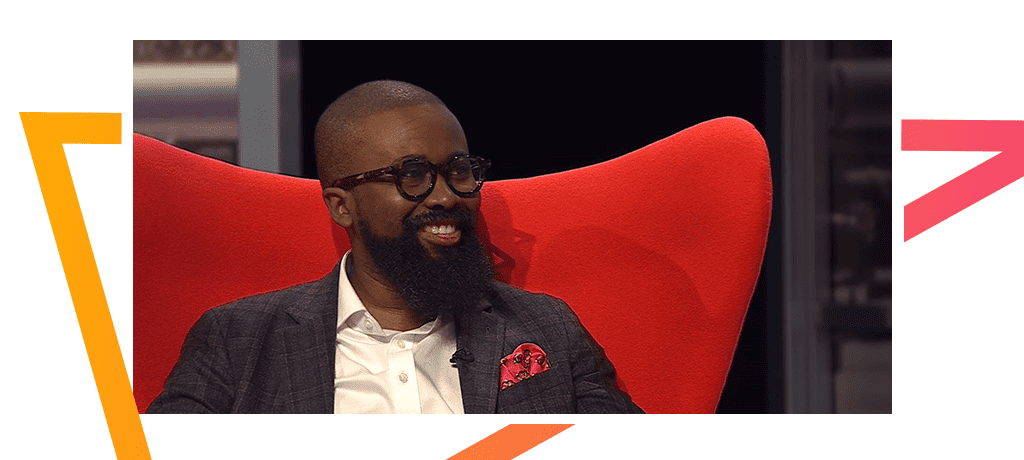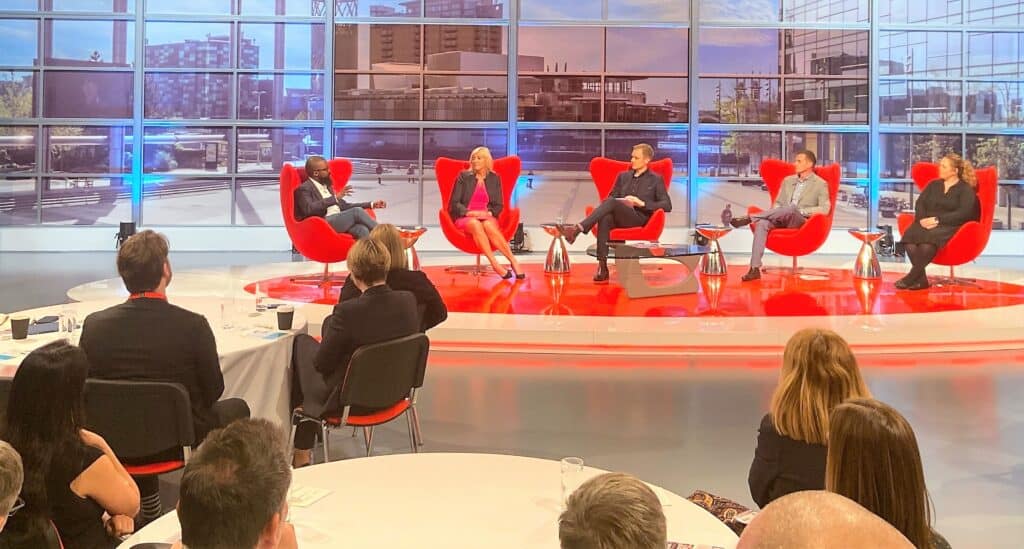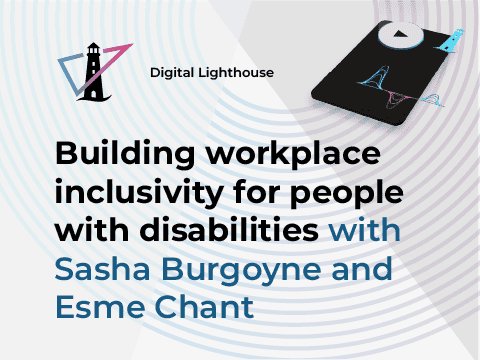
I was recently invited onto one of the panel sessions at Best Companies Live, where we discussed the importance of conversation in any company (You can view the session here). It’s very clear to me that we all want to create workforces where people feel a real connection with their teams, the business, and its overall purpose. Conversation is so important in achieving this!

Following the discussion, I wanted to draw out a couple of the ways that we strive to converse with our people within Softwire. I hope this helps prospective employees get a better idea of what working here is like, and also provides inspiration for other business leaders, who are looking to increase workforce engagement.
Regular director updates and Q&As
We’ve always wanted to be a very open and transparent organisation. Regular all-company updates from the directors have been a fixture, as have informal ‘tea and cake’ sessions, both in-person and online.
There are two reasons we do these. First off, these sessions enable the management team to let people know what we’re all part of: the company’s vision, strategic direction, and purpose. They also mean we can outline the reasons decisions have been made (or will be made), and show people how they can play a part in helping us all achieve success.
The second aim is just as important: these sessions provide opportunities for people across the company to feed back into our vision and direction of travel. Having this two-way conversation is essential if we’re to forge that sense of connection that will help us hold onto the best talent, and empower those people to do their best work for our customers.
Being pragmatic about how and how often we connect
You need to be pragmatic when you’re trying to connect with people, both in terms of how, and how often. Some interactions need to happen regularly if they’re to be efficient. Others can take place much less frequently.
Equally, there are different ways people can feel connected. It might be that one team gets together in the office one day a week. But as we all found out during the pandemic, there are loads of virtual ways to gain that kind of connection, so for some teams this may work better.
Trying to find that balance can be a challenge because everyone’s situation is different. For example, a team member with children may need to work remotely more often, while a team member aiming for separation between their work life and home life might only want to connect in the office.
(I’d start off with actively listening to each team member’s preferences and reasons, and see if there’s a healthy middle ground, or suggest collaborating on a creative solution that everyone can feed into and agree on.)
Engaging with individuals and communities in the ways they want
It can sometimes be easy to think of your workforce as one giant monolith, to which you can apply a one-size-fits-all conversation approach. Of course, the reality is that as individuals or as communities, we’ll tend to want to engage with colleagues and our employers in different ways.
So, by talking directly to individuals and communities within the company, we find we’re able to gain a much better understanding of how they would like to hear about things, and how they’d like to feed back. By listening and then striving to interact via their preferred means, we’ve found we’re able to reach those individuals and communities much more effectively, and thereby foster a more inclusive culture.
Trust and autonomy
One of the learnings that emerged strongly from our recent exercise to document our values – which we got the whole business involved in – was this notion that people here really want to do the right thing.
By creating a culture of trust, where we delegate responsibility for decision-making, we really give individuals the autonomy to step up and do what they believe is right. And when people feel encouraged and empowered in this way, my belief is that they then feel able to bring their best selves to the workplace, which is a great cultural trait to strive for.
Always seeking to improve
The other thing we keep sight of is that we can always do better and must never stand still. As a business, we’re growing our headcount, and expanding into new locations (hello Cambridge and Manchester!). We’re also actively trying to make our workforce as diverse as the communities we operate in. All of this means we’re continually needing to re-assess the ways we converse with our teams, to ensure we continue to be transparent, inclusive and welcoming of feedback.
Getting it right is a must if we’re to maintain our long-standing position among the UK’s best companies to work for – something we’re immensely proud of.
I’d love to hear from others on the ways you seek to converse with your people – feel free to drop me a line at [email protected].
(And if you think a role at Softwire sounds like the ideal next step in your career, head over to our careers page to find out more about our values and explore our current vacancies.)


